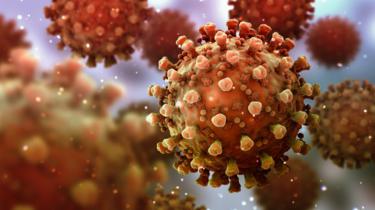Health: Hong Kong reports 'first case' of virus reinfection
Hong Kong reports 'first case' of virus reinfection
 GETTY IMAGES
GETTY IMAGESHong Kong scientists are reporting the case of a healthy man in his 30s who became reinfected with coronavirus four and a half months after his first bout.
They say genome sequencing shows the two strains of the virus are "clearly different", making it the world's first proven case of reinfection.
The World Health Organization warns it is important not to jump to conclusions based on the case of one patient.
And experts say reinfections may be rare and not necessarily serious.
There have been more than 23 million cases of coronavirus infection around the world.
- Coronavirus immunity: Can you catch it twice?
- More could have Covid immunity than tests suggest
- Can you become immune to coronavirus?
Those infected develop an immune response as their bodies fight off the virus which helps to protect them against it returning.
The strongest immune response has been found in the most seriously ill patients.
But it is still not clear how strong this protection or immunity is - or how long it lasts.
And the World Health Organization said larger studies over time of people who had previously had coronavirus were needed to find out more.

- SYMPTOMS: What are they and how to guard against them?
- TESTING: Who can get a test and how?
- YOUR QUESTIONS: Our experts have answers
- LOOK-UP TOOL: How many cases in your area?
- GLOBAL SPREAD: Tracking the pandemic
- THE R NUMBER: What it means and why it matters

This report, by the University of Hong Kong, due to be published in Clinical Infectious Diseases, says the man spent 14 days in hospital before recovering from the virus but then, despite having no further symptoms, tested positive for the virus a second time, following a saliva test during airport screening.
"This is a very rare example of reinfection," said Brendan Wren, professor of microbial pathogenesis, at London School of Hygiene and Tropical Medicine.
"And it should not negate the global drive to develop Covid-19 vaccines.
"It is to be expected that the virus will naturally mutate over time."
Dr Jeffrey Barrett, senior scientific consultant for the Covid-19 genome project at the Wellcome Sanger Institute, said: "Given the number of global infections to date, seeing one case of reinfection is not that surprising even if it is a very rare occurrence.
"It may be that second infections, when they do occur, are not serious - though we don't know whether this person was infectious during their second episode."
Prof Paul Hunter, from the University of East Anglia, said more information about this and other cases of reinfection was needed "before we can really understand the implications".
Comments
Post a Comment